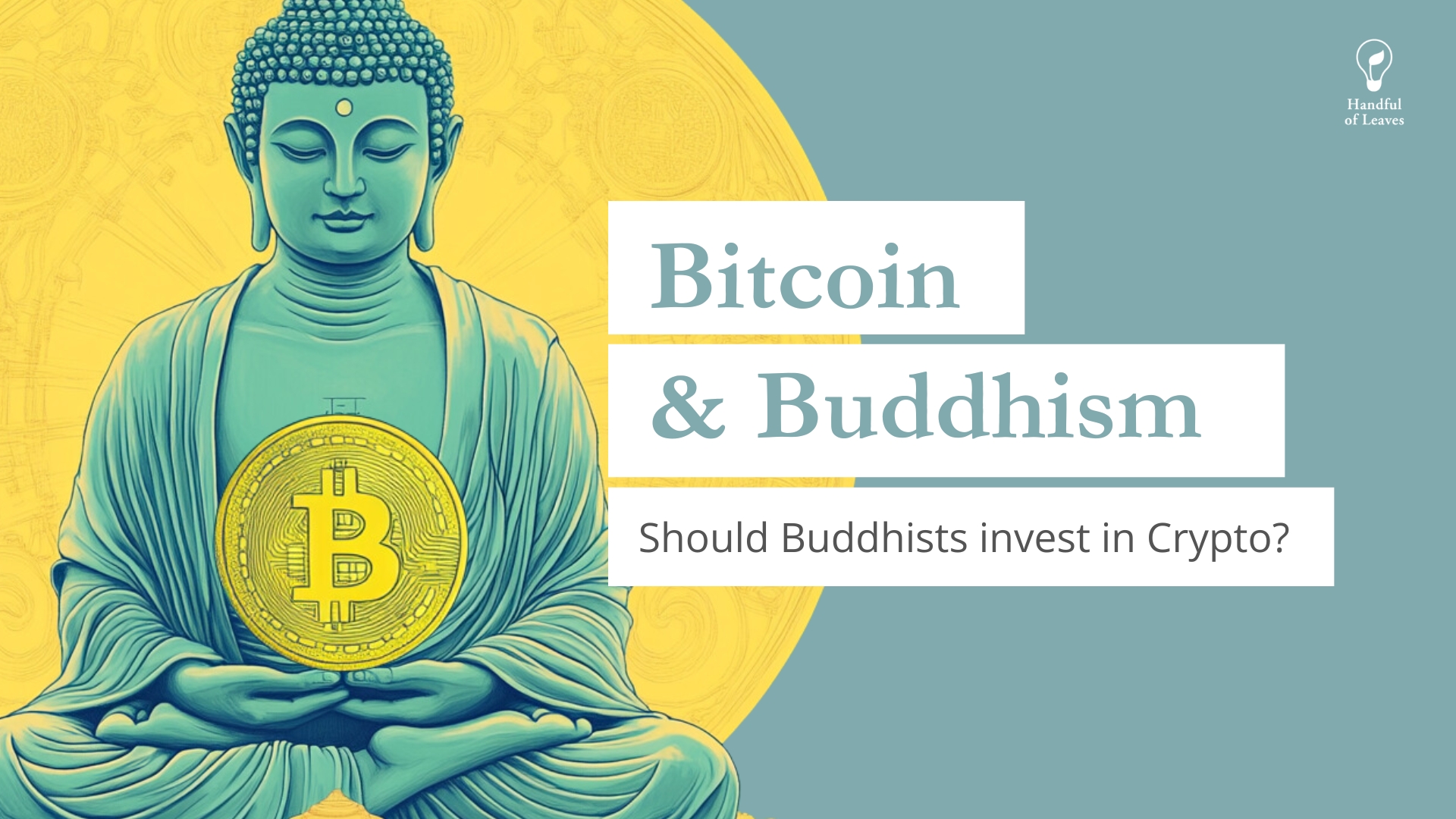Disclaimer: The content of this article is provided for informational and educational purposes only and does not constitute professional investment advice. The views expressed here are those of the author and do not reflect the opinions of any financial or investment institutions. Investing in cryptocurrencies involves risks, including the potential loss of principal. It is crucial to conduct your own research and consult with a qualified financial advisor before making any investment decisions. The author and publisher of this article are not responsible for any financial losses or damages that may arise from the use of this information.
Cryptocurrencies are everywhere these days—from flashy social media posts to dinner table conversations. The buzz is hard to ignore.
Since its debut in 2008, cryptocurrency has gone from a niche tech curiosity to a mainstream investment vehicle promising both rapid wealth and groundbreaking technology. However, this ascent is not without controversy. Advocates tout its potential for financial inclusion and disruption of traditional financial systems (and gain wealth exponentially), while skeptics warn of its speculative nature and ethical pitfalls.
Should Buddhists invest in Crypto?
This question isn’t just about the potential for financial gain. It’s about navigating the complex landscape with wisdom and ethical clarity.
We recognise that many have wrestled with this question, and as of the date of this article, resources on the topic can feel quite limited. The crypto landscape is fraught with traps that can easily divert one from the Buddhist path. Hence, we hope the perspectives shared here will serve as a helpful guide for both newcomers and those already in the space. However, please keep in mind that our perspectives may also have their limitations, so we encourage you to reflect deeply and form your own conclusions rather than taking our word as definitive.
Given the intricacies and potential risks involved, this article is quite comprehensive. To gain the full benefit, we recommend reading it in its entirety.
However, if you’re already well-versed in the crypto space, feel free to skip to Part 2 of this article.
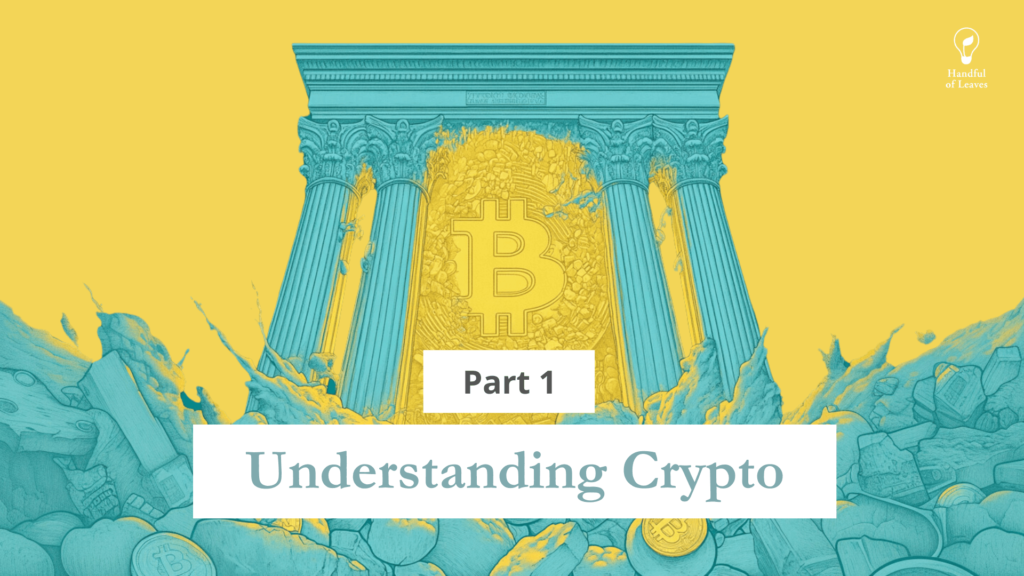
Part 1. Understanding Crypto: A Crash Course
How Did We Get Here?
Cryptocurrencies emerged in the aftermath of the 2008 financial crisis, driven by a desire to create decentralised financial systems immune to the shortcomings of traditional banking.
Bitcoin, created by an anonymous person or group known as Satoshi Nakamoto, introduced blockchain technology. Imagine blockchain as a super-secure digital ledger—like a massive, public notebook where every transaction is recorded, but with no central authority flipping the pages. They promise transparency and security, aiming to revolutionise finance by cutting out the middleman—banks, brokers, and custodial institutions. On top of that, Bitcoin’s capped supply of 21 million was designed with a noble intent: to counter the endless devaluation seen in fiat currencies, which are subject to inflation and central bank policies.
This innovation was initially seen as a way to democratise finance, offering an alternative to traditional financial systems plagued by centralisation and opacity. But fast forward a few years, and the crypto scene has exploded, overflowing with thousands of altcoins and meme coins. Some of these started as playful jabs at the market, but now they’re serious contenders, proving that in the world of crypto, even a joke can become a big deal.
Not all coins are created equal
The crypto landscape is a diverse mix of projects, each with its own goals and credibility. While some aim to address real-world problems with innovative solutions, others offer dubious value or are outright scams.
Bitcoin (BTC): As the trailblazer in the world of cryptocurrency, Bitcoin is often dubbed “digital gold.” It was designed as a decentralised alternative to traditional currencies, serving primarily as a store of value. With its fixed supply and robust security, Bitcoin focuses on preserving wealth rather than facilitating everyday transactions.
Stablecoins: These are cryptocurrencies pegged to stable traditional assets, like the US dollar (e.g., Tether or USD Coin). Stablecoins offer a buffer against the wild price swings common in the crypto market, providing a more reliable store of value and medium of exchange.
Altcoins: This term covers all cryptocurrencies other than Bitcoin, each with distinct functions and potentials. For example, Ethereum enables smart contracts and decentralised applications (dApps), forming a core part of the Web3 ecosystem by facilitating various innovative projects beyond simple transactions.
Meme Coins: Often created for amusement or to capitalise on internet trends, meme coins like Dogecoin can be highly volatile and generally lack serious use cases. Their primary appeal is often their novelty or community-driven hype rather than any substantial technological or financial advantage.
Understanding these categories helps navigate the complex world of cryptocurrencies, making it easier to identify which projects might align with your investment goals, and eventually, help to answer the big question this article started with.
Note: While NFTs are based on blockchain technology, they serve a different purpose than cryptocurrencies. Therefore, we won’t be covering them in this article.
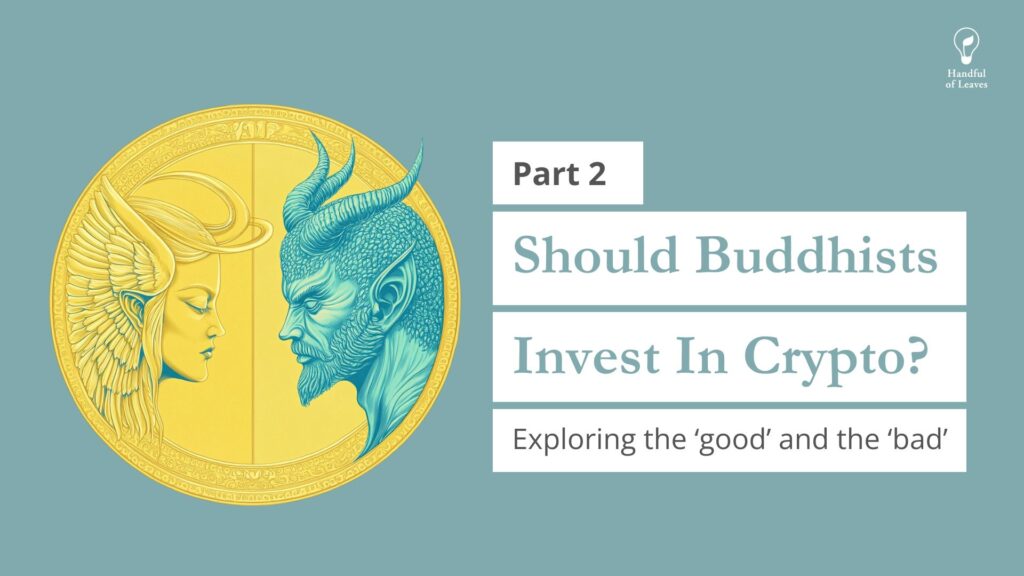
Part 2. Should Buddhists Invest in Crypto?
Whether Buddhists should invest in cryptocurrency is a nuanced question that touches on ethical, philosophical, and practical considerations. It largely depends on how you invest, and how serious you are about awakening (you’ll come to know why as you read on).
There are typically two camps of people – the advocates and critics. Instead of taking sides, let’s evaluate the merits of both arguments.
Seeing Both Sides of the Coin and Beyond
The Good

(i) Some cryptocurrencies offer financial stability which can result in mental stability
The phrase “You can die, just don’t fall ill” captures a harsh reality: money is essential for survival. We need it to meet our basic needs—a roof over our heads, food in our bellies, and bills to be paid. When we accumulate and preserve wealth, we edge closer to financial stability, which in turn supports our mental stability. After all, it’s hard to avoid stress when you’re burdened by debt and a dwindling bank balance.
Crypto investment, if managed wisely, can contribute to achieving this financial stability.
> Potential hedge against Inflation
In our grandparent’s generation, one can buy a bowl of fishball noodles for just 5 cents. Now? It costs about 5 dollars. This is inflation.
A way to hedge against it is to invest using the traditional currency in the stock market, in government bonds, funds etc. But the fiat currency is eroding in value as central banks “print” money, which promotes inflation. Well, this is inevitable as the government bodies have to do so over time to grow and stabilise the economy.
So, Bitcoin has been looked upon as the next alternative option to hedge against inflation because of its capped supply. There will only ever be 21 million bitcoins in existence, a feature designed to mimic the scarcity of precious metals like gold. The idea is that, as fiat currencies inflate and lose value, the fixed supply of Bitcoin could make it more valuable as a store of wealth.
Note: This perspective on Bitcoin differs from that of many altcoins, which often lack the same scarcity and may not offer the same potential as a hedge against inflation.
> Golden opportunity to multiply your wealth.
If financial constraints are standing between you and your dreams—whether that’s embarking on lifelong meditation retreats, engaging in volunteer work, or escaping the stressful capitalist rat race—crypto investments might offer a path to bridge that gap. Alternatively, if you aspire to donate to charitable causes without feeling the financial strain, crypto investments could potentially help you achieve that goal.
Moreover, the explosive growth of certain altcoins has enabled some individuals to multiply their wealth rapidly and achieve financial independence sooner than traditional investments might allow. The significant gains experienced by early adopters of these newer cryptocurrencies (alt coins) highlight the potential for substantial returns.
Just as gold and fiat currencies had their moments of high returns, cryptocurrencies, including altcoins, present a similar opportunity for financial growth. This period could be seen as a unique moment in financial history, offering a substantial leap toward financial independence for those who navigate it wisely.
(ii) Supporting the greater good and charting the future
Investing in cryptocurrencies isn’t just about potential financial gains; it’s also about supporting the broader technological innovation that blockchain brings and to drive massive adoption.
> Financial inclusion
You probably have a bank account or multiple ones. With a bank account you get all sorts of benefits. You can collect interest from fixed deposits, apply for credit cards to pay bills, earn cashback, and collect for miles. We don’t often think about this, but being able to own a bank account is a great privilege, which not everyone has.
There’s a significant portion of the global population that doesn’t have access to basic banking services. This “unbanked” population faces challenges related to languages, income, employment status, etc to meet the minimum requirements for opening a bank account. For these individuals, financial exclusion means relying on expensive and inefficient alternatives like check-cashing services or money orders. This not only adds unnecessary costs but also limits their ability to save and grow their wealth.
In this context, the combination cryptocurrencies, crypto wallets, and crypto trading platforms offer a potentially transformative solution.
> Transparency and Trust
One of the core features of cryptocurrencies is their transparency and increased immutability. Transactions are recorded on a public blockchain, where they are visible and verifiable by anyone. Once a transaction is recorded, it can’t be changed unless specific conditions are met, like getting approval from more than half of the network. This can reduce the power of centralised institutions that often operate with little oversight and that prioritise their agendas over the public. Investing in cryptocurrency is a way to support the advocacy of fairness and honesty, which are values of Buddhism.
Take, for instance, the application of blockchain in the field of academic certifications. Traditionally, verifying a person’s academic credentials can be a cumbersome process, often involving multiple layers of bureaucracy and potential for fraud. However, blockchain technology offers a solution to these challenges by providing a secure and immutable way to authenticate educational achievements.
The Not-so-Good
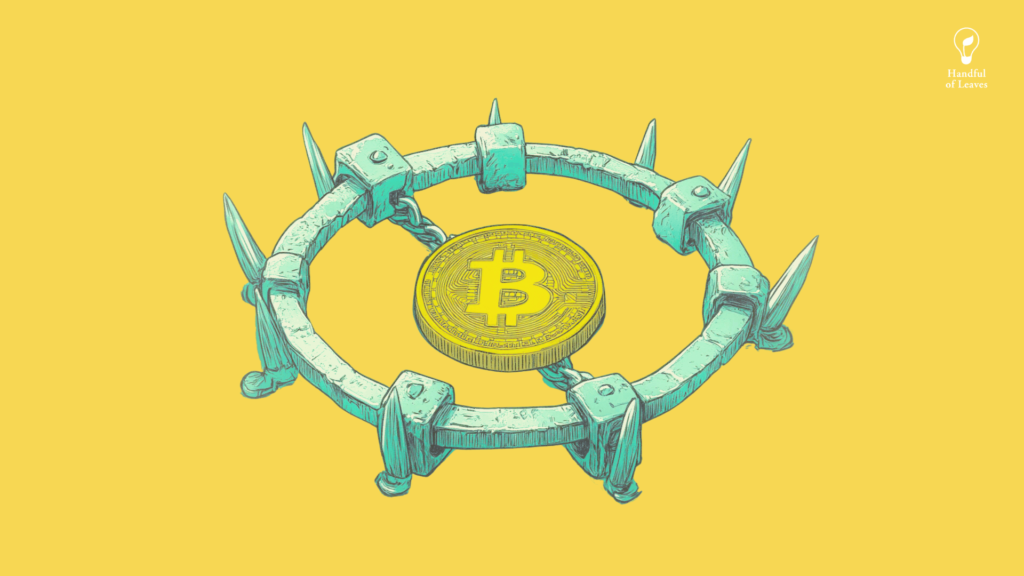
Now, let’s flip the coin and look at the other side because, as much as we’d like to believe in the golden promises of crypto, there’s a not-so-shiny reality to consider.
(i) It’s a roller coaster ride!
The crypto market is wild. It’s like riding a roller coaster with no safety bar—prices swing like crazy. One day, your investment might be skyrocketing, and the next, it could be plummeting into the abyss. Sure, the potential gains can be tempting, but let’s be real: the risk of losing your wealth is just as high. Unlike traditional investments like stocks or bonds, where there’s a degree of stability and regulation, the crypto market operates with far fewer guardrails. It’s a place where fortunes can be made—and lost—in the blink of an eye.
Given the volatile nature of this market, if you’re investing with a short-term mindset, prepare to lose not just your money but also your peace of mind. There’s no two ways about it—The emotional toll can be heavy, as the uncertainty and constant fluctuations make it challenging to maintain a balanced and serene state of mind. It will be tough to meditate peacefully or remain unaffected when the value of your investment is bouncing around like a ping-pong ball.
(ii) Regulation Gaps Enable Crypto Scams
And then there’s the fact that not every coin out there is a beacon of innovation. Some are straight-up scams. Remember FTX? For those who don’t, it is the collapse of a cryptocurrency exchange due to its founders misusing billions of dollars in customer funds for risky investments. It’s a stark reminder that the crypto world isn’t all about decentralisation and democratisation; it’s also about bad actors looking to make a quick buck at your expense. In the absence of strong regulatory oversight, it’s easy for fraudulent schemes to flourish, luring in unsuspecting investors with promises of overnight wealth.
(iii) Productivity? What Productivity?
Unlike traditional stocks, cryptocurrencies don’t really contribute to increasing productivity. When you invest in a company through the stock market, you’re essentially betting on its ability to grow, innovate, and contribute to the economy. Your investment supports businesses that create jobs, develop new products, and drive economic progress. But with crypto, the value often comes from speculation rather than tangible contributions to the economy. It’s more about trading digital assets than backing productive enterprises.
Meme coins, in particular, offer no real utility or inherent value. Their prices are often driven by speculation and hype, which means their value can be largely illusory. This speculative nature can be seen as inconsistent with Buddhist principles of honesty and integrity. Buying and selling meme coins may feel like engaging in a pursuit based on false pretenses, raising ethical concerns about aligning such actions with the values of truthfulness and Right Livelihood.
(iv) A fuel for greed
Let’s be honest. While cryptocurrencies can offer financial independence and support innovation in financial technology, most investors aren’t driven by a noble vision of revolutionising the financial world. Instead, the main motivation for many is simple: to gain wealth, and gain it quickly. Crypto’s allure lies in its potential for explosive growth—stories of early adopters turning modest investments into millions are everywhere, feeding the dream of striking it rich. But this dream can quickly morph into greed, fueling a relentless pursuit of more. The problem with greed is that it’s insatiable. No matter how much wealth is accumulated, the desire for more remains, often leading to risky decisions, impulsive trading, and a disregard for ethical considerations.
The in-between
When it comes to crypto, the waters are murky, and in Buddhism, things are rarely black or white.
(i) The intention, not the action
Good and bad aren’t rigid labels but rather reflections of your intentions and the outcomes of your actions. This nuanced view is central to Buddhist philosophy, where wealth isn’t seen as inherently evil or bad. As E.F. Schumacher wisely put it in Small is Beautiful, “It is not wealth that stands in the way of liberation but the attachment to wealth; not the enjoyment of pleasurable things but the craving for them.”
This concept aligns with the principles of kusala (wholesome) and akusala (unwholesome) actions. Kusala actions are those motivated by positive intentions, aiming to benefit oneself and others. If your investment in cryptocurrencies is driven by a genuine desire to support innovation and contribute to a fairer financial system, it can be seen as kusala. Conversely, akusala actions are driven by negative intentions, such as greed or deceit. If your sole motivation is to chase quick profits or exploit market hype, your actions might veer into akusala territory.
(ii) Beware of tightly held views
In Buddhism, there’s also a significant teaching on the danger of holding on too tightly to our views, especially the idea of being right or wrong. Conceit has a way of sneaking into our minds, convincing us that our stance is the correct one. Whichever side you’re on, you’ll find every reason to refute the other.
For instance, some critics argue that blockchain technology harms the environment because of the significant energy required to mine cryptocurrencies. This is a valid concern, but it’s not the whole picture. We can say the same for gold mining—much harm is done to people and the environment in the pursuit of gold. This reflection should extend beyond crypto. What about our daily habits and consumption? Do we use air conditioning excessively, or rely on single-use plastics? Are these actions truly in line with our ethical concerns?
In the end, the need to be “right” can hinder our peace and liberation. Holding on to rigid views reinforces the sense of self, which Buddhism teaches is at the core of our suffering. So, what matters is approaching these issues with an open mind, a sense of humility, and a willingness to see the bigger picture.
So, where does that leave us with cryptocurrency?
Well, it’s not so much about whether crypto is good or bad but about how we approach it. If fiat currency does eventually get replaced by digital currency, we might one day find ourselves with no choice but to invest. The key, then, is not just in the act of investing, but in how we do it.
So if you’ve decided to dive into the crypto space, here are some helpful points to consider to navigate the space carefully so you don’t lose your way.
3. Considerations to make before and during investing.
1. Right Livelihood
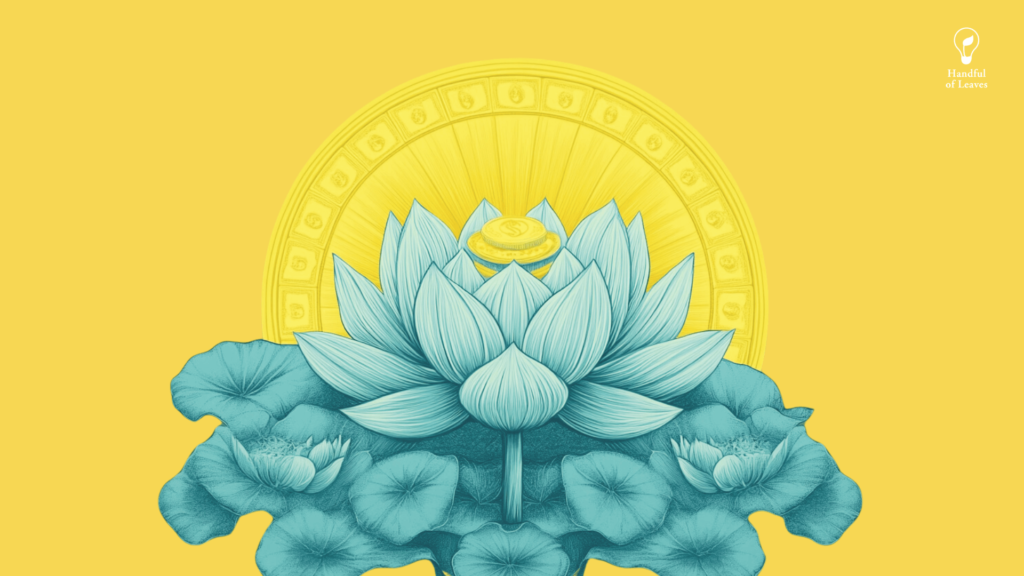
Right Livelihood is a crucial component of the Noble Eightfold Path, guiding us to earn a living in a way that is ethical and aligned with our values. This principle helps us navigate the complexities of modern life, including the rapidly evolving world of cryptocurrency.
You can ask yourself these three questions:
(a) Is the money rightfully gained?
In the context of Right Livelihood, we need to ask: Is the money you’re making through crypto investment rightfully gained?
According to Buddhist teachings, unethical practices such as manipulation, deceit, or exploitation are considered wrong livelihoods. As highlighted in the Mahācattārīsaka Sutta (MN 117), wrong livelihood involves scheming, persuading, hinting, belittling, and pursuing gain through deceitful means.
In the crypto world, there are instances where so-called “whales”—large holders of cryptocurrencies—manipulate the market. They create hype and narratives to artificially inflate the value of a coin, only to sell off their holdings for a profit, often at the expense of unsuspecting investors. This kind of market manipulation contradicts the principles of ethical earning. The transparent nature of the blockchain would also allow one to adopt or copy the market-manipulating whales as an investing strategy. This would similarly be contrary to ethical earning as one exacerbates the effect of the manipulation.
Thus, if you decide to invest, it’s crucial to evaluate your strategy to ensure it aligns with your ethical standards. Earning wealth through righteous means is not just a moral imperative; it helps us avoid future distress, as the Buddha wisely stated in the Adiya Sutta:
“For whatever aim a wise householder would desire wealth, that aim I have attained. I have done what will not lead to future distress.”
– (AN 5.41)
(b) Do you know what you’re investing In?
Another crucial aspect of Right Livelihood is knowing the nature of your investment. Are you thoroughly informed about what you’re investing in, or are you chasing quick profits without understanding the underlying assets? This consideration is particularly pertinent given the prevalence of fraudulent schemes in the crypto space.
For example, many investors were lured by the promise of high returns from companies, only to discover later that these entities were, at best, shell companies or outright scams. The allure of fast money can cloud judgment, leading to investments in ventures that do not have a solid foundation or ethical standing.
In this regard, it’s vital to conduct due diligence and be wary of investments that may not be transparent or legitimate. Understanding what you’re investing in—and ensuring it aligns with ethical principles—is crucial for maintaining Right Livelihood. The importance of diligent preparation is underscored by the Buddha in his description of the first two out of the four conditions for worldly progress (Dīghajāṇu sutta, AN 8.54): accomplishment of persistent effort (utthana-sampada), and accomplishment of watchfulness (arakkha-sampada).
“whatsoever activity a householder earns his living, whether by farming, by trading, …or by any other kind of craft — at that he becomes skillful and is not lazy…This is called the accomplishment of persistent effort.”
– AN 8.54, Conditions of Welfare
“whatsoever wealth a householder is in possession of, obtained by dint of effort, collected by strength of arm, by the sweat of his brow, justly acquired by right means…such as thieves would not steal it… This is the accomplishment of watchfulness.”
(c) Are you gambling
There’s a fine line between investing and gambling, and it’s essential to recognise when that line is being crossed. But when does it become gambling?
When you take on debt to speculate, you’re stepping into the territory of gambling, which the Buddha said is one of the four ways that drains the wealth one has amassed. The danger lies in not being content with the gains you’ve already made and wanting more—this time with bigger bets and higher risks, hoping for larger returns. Leveraged trading, for instance, is a common practice where investors borrow money to increase their exposure to the market. While this can amplify profits, it also significantly increases the risk of losses, and many have found themselves in financial ruin as a result.
To avoid falling into the trap of gambling, it’s important to know the price points at which you plan to enter and exit a trade, based on thorough research and not on whims or emotions. Even if the value of the coin continues to rise after you’ve sold, it’s crucial to make peace with your decision and not chase after what’s already passed. Investing should be grounded in wisdom and restraint, not in the reckless pursuit of more.
These are the four kinds of bliss that can be attained in the proper season, on the proper occasions, by a householder partaking of sensuality.
– AN 4.62, Anana Sutta: Debtless
Knowing the bliss of debtlessness,
recollecting the bliss of having,
enjoying the bliss of wealth,
sees clearly with discernment. Seeing clearly, the wise one, he knows both sides: that these are not worth one sixteenth-sixteenth of the bliss of blamelessness.
2. Keep your motivations in check

It’s easy to get swept up by the market and lose track of your original intent. You may have started out with the motivation to gain financial independence and retire early so that you can devote more time to formal practice, or perhaps you wanted to provide a good life for your parents, support charitable causes, or donate to monastery projects. These are all noble goals, but the path to achieving them can be fraught with distractions.
As you venture deeper into the world of cryptocurrency, the initial motivation can slowly shift. The thrill of making quick profits, the desire to outpace others, or even the fear of missing out can creep in, overshadowing your original purpose. Before you know it, what started as a means to an end becomes an end in itself. You might find yourself constantly checking market prices, obsessing over trends, or chasing after the next big thing.
This shift in focus can lead to stress, anxiety, and even greed—emotions that are counterproductive to both financial stability and mental well-being.
The Buddha offers guidance on wealth accumulation, emphasising the balance between earning and managing wealth responsibility. In the Digha Nikaya (DN 31), he advises dividing wealth into four parts: one part for necessities, two parts for investments, and one part for savings. This method helps keep our motivations in check, ensuring our needs are met while protecting ourselves against excessive risk-taking.
Wealth preservation is equally crucial. If you’ve achieved the profits you set out for, remain vigilant. Sudden wealth can be fleeting; without careful management, it may slip away as quickly as it arrived. Hence, the Buddha taught the Sigalovada Sutta, which cautions against six ways to squander wealth: heedlessness due to intoxication, wandering the streets at inappropriate times, habitual partying, compulsive gambling, associating with bad company, and laziness.
So, regularly pause and ask yourself:
- Are your actions still aligned with your original intentions?
- Are you investing mindfully, or have you been swept away by the tides of greed and fear?
3. Keep tabs on your sense of self.
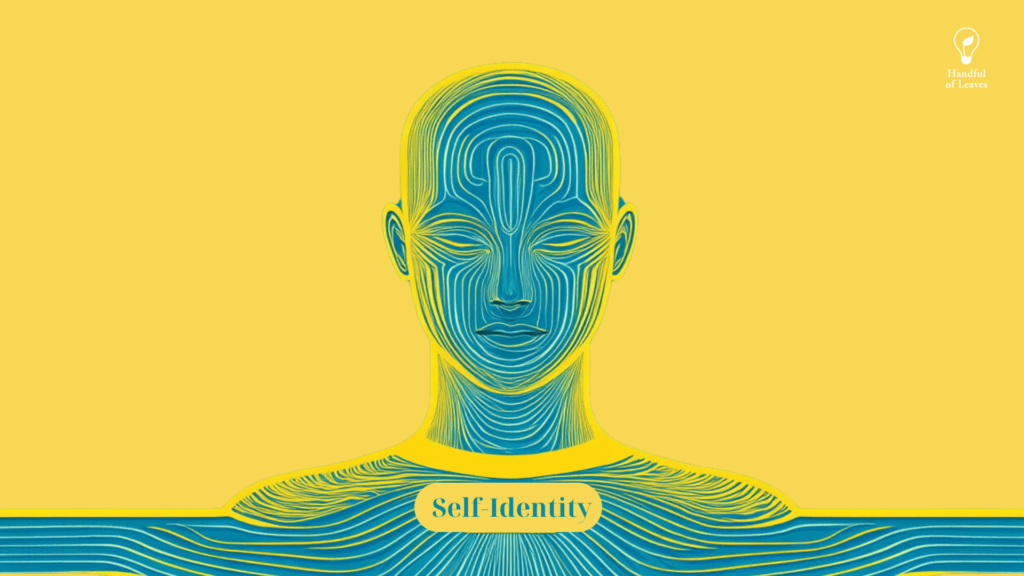
Has being an advocate for cryptocurrency become a core part of your identity? It’s essential to reflect on how much of what you do or share stems from ego. Do you get upset with skeptics or feel superior to those who don’t invest? Now that you’ve accumulated wealth, do you walk with an air of superiority or spend extravagantly?
Wealth can easily create a sense of division, leading to feelings of inferiority or superiority. Buddhism teaches us to be cautious of such attachments. As the Dhammapada (Dhp. 355) warns, “Riches ruin the foolish, but not those in the quest of the Beyond (Nibbana).”
Focus on humility, compassion, to ensure your wealth doesn’t distort your sense of self or inflate your ego.
4. Your peace of mind. Is it affected?

Is your peace of mind being affected by your investments?
The Buddha identified the Five Hindrances—sensual desire, ill will, sloth and torpor, restlessness, and doubt—as major obstacles to inner peace. Engaging in crypto investing without careful reflection may unintentionally cultivate some of these hindrances:
- Sensual desire – clouding the future: The anticipation of wealth can excessively stimulate the mind with fantasies.
- Ill will – keeping us in the past: Losses, whether realised or not, can lead to self-blame and enduring regret.
- Restlessness – agitating the present: Constantly overthinking trades and decisions can impair one’s ability to be at ease in the present.
If there are other ways to achieve your financial goals without losing your peace, consider those options. Even if the potential financial upside of these alternatives isn’t as high, they might be more valuable in the long run if they don’t jeopardise your mental well-being or relationships.
Be true to yourself. Some people have the mental stability and emotional resilience to remain unaffected by market swings. If you find that you’re not one of them, it might be wise to reassess your strategy. After all, some things are priceless and not worth trading for material gains. Perhaps investing in assets, government bonds, or funds that don’t require constant monitoring is a better choice.
5. Accumulate spiritual wealth too

In our quest for financial success, it’s essential to remember that the ultimate currency is not material wealth but spiritual wealth. No matter how much money we accumulate, we cannot carry it with us beyond this life. In contrast, investing in spiritual practice and ethical living generates merits that endure across lifetimes, building a foundation for spiritual progress and liberation. Unlike material assets, spiritual merits are not subject to market fluctuations and remain a source of enduring fulfillment.
So, as you navigate the pursuit of financial gain, integrate your resources into endeavors that uplift others and support meaningful causes. Through acts of kindness, generosity, and adherence to ethical principles, your Dhamma currency will inflate and its value compound.
*We acknowledge the popular notion that making donations out of gains wrongly acquired “offsets” the negative kamma. This idea has been debunked in the Maha Kammavibhanga sutta (MN 136) as the workings of kamma is not as simplistic to warrant any certainty in that notion We can only say that driven by intention, the unwholesome ways of earning would have created its kamma, destined to ripen at a future time, and wholesome acts would similarly await for the conditions towards its fruition.
6. Draw Buddhist lessons as you invest
Investing and Buddhist practice are not separate pursuits; they can offer valuable Dhamma lessons. For instance, consider the concept of emptiness in the economy.
At its core, a coin or a dollar bill holds no intrinsic value. Their worth is based on collective belief and agreement, just as the value of cryptocurrencies is driven by market perceptions. Historically, currencies have been pegged to tangible assets like gold, but this linkage has evolved over time. Ultimately, these values are empty, a reflection of the shared faith and system that underpin them.
Additionally, contemplate the interdependence of things. Just as the value of money is not inherent but depends on various factors, our investments and actions are interconnected with broader conditions.
Lastly, the volatility in the markets may force the investor to face the eight worldly winds (AN8.6) – Gain, loss, status, disgrace, censure, praise, pleasure and pain. The Buddha taught that even though everyone would go through the worldly winds, only the wise and instructed ones would consider things as they are, equanimously reflecting “It is inconstant, stressful, & subject to change.”
By drawing these Dhamma lessons as you invest, you can enhance your progress on the path to spiritual growth.
Conclusion
So, should Buddhists invest in crypto?
In the end, the heart of Buddhist practice is about walking the path to liberation—liberation from suffering, from attachment, from the things that weigh us down. So, when faced with the question, “Should I invest in crypto?” the answer is deceptively simple: If you’re multiplying your wealth but depleting your virtue, happiness, and peace in the process, then it’s probably not the right move. Why? Because when your actions harm you, they inevitably harm those around you too.
The decision to invest or not is ultimately one only you can make for yourself. The Buddha never commands us to do or not do; he guides us. Hopefully, by understanding the pitfalls and benefits of cryptocurrency investments will help you make informed decisions.
It’s crucial to acknowledge that, while we analyse or debate whether crypto investments align with Buddhist values, the fundamental truth remains: as long as we inhabit this world, we wrestle with greed, hatred, and delusion, and cling to our sense of identity. Whether wealth is acquired through a 9-5 job or through investments in shares, properties, bonds, or cryptocurrencies, any method can perpetuate these defilements if the mind is untrained. Ultimately, it comes down to spiritual maturity—learning how to remain unaffected by worldly currents.
– AN 1.33
The mind, when untamed, unguarded, unprotected, and unrestrained, leads to great harm.
If one truly seeks to cross to another shore, they may come to realise that:
and thereby choosing instead to pursue noble wealth via the Noble Eightfold Path full-time (a.k.a ordain).
As the Buddha taught, “There is no satisfying sensual desires, even with the rain of gold coins. For sensual pleasures give little satisfaction and much pain. Having understood this, the wise man finds no delight even in heavenly pleasures. The disciple of the Supreme Buddha delights in the destruction of craving.”
Wise steps:
Before diving into cryptocurrency investments, ask yourself:
- What are my true motivations for investing?
- How will this investment impact my ethical and spiritual principles?
- Am I maintaining a sense of peace and balance in my life?
- How does this investment align with my long-term spiritual goals?

